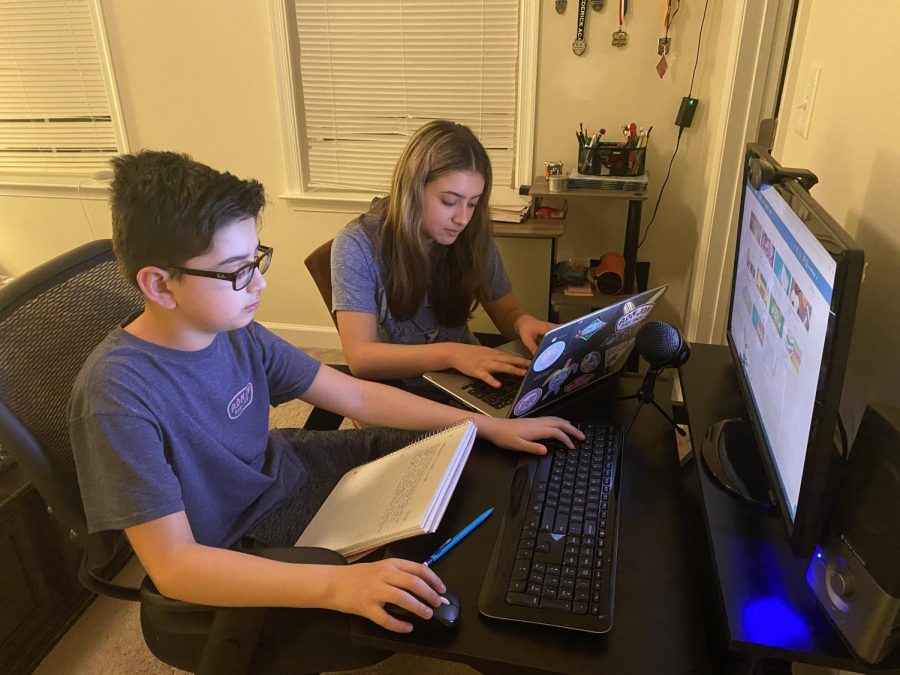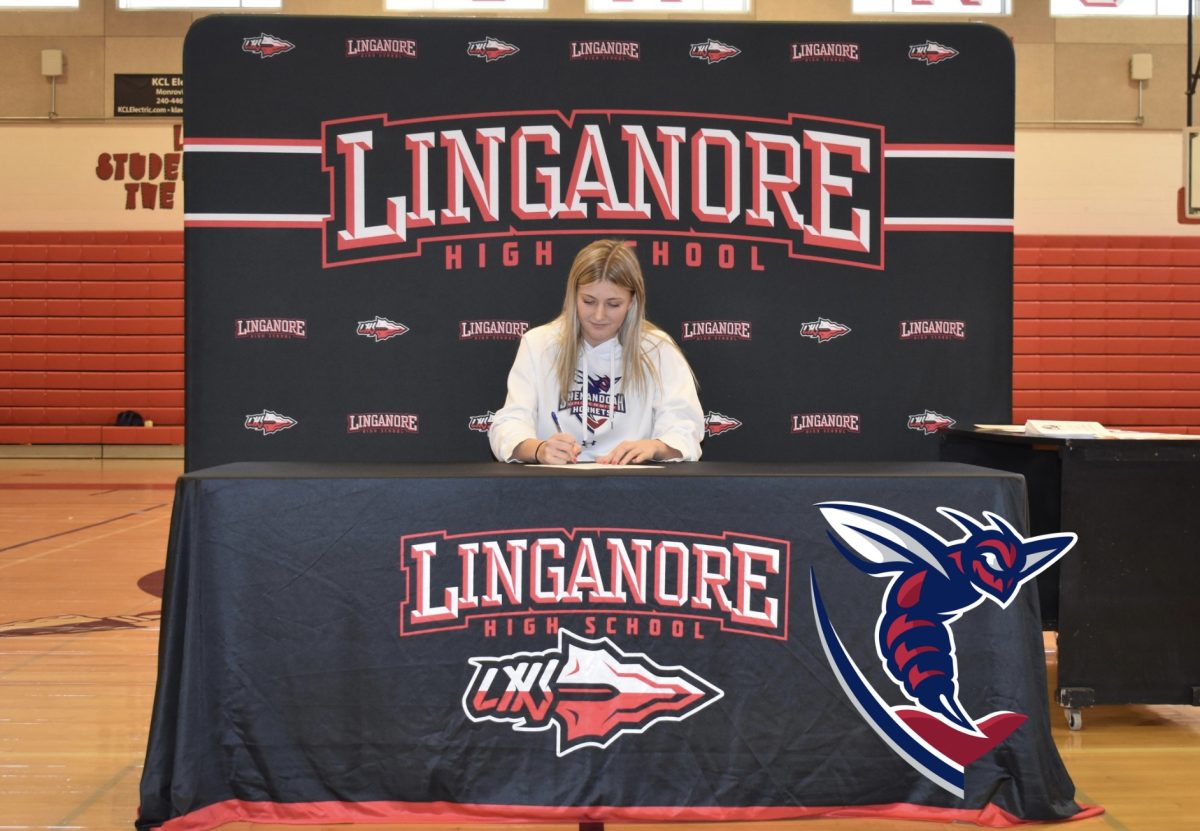Parents struggle to “do it all” with school-aged children, work, and home life
Families find helping each other out is the only way to get through virtual learning.
Madariaga siblings working hard together on their school work.
March 2, 2021
Everyone’s on a Google Meet, working from different rooms. Then, there is a six-year-old and a three-year-old, running between rooms, looking for attention, asking “Can I get a drink?”
Welcome to a modern pandemic household.
In many families with younger children, older siblings are stepping up to help their younger siblings with school, sacrificing their own work time. Parents are having to find new ways around their work schedules when their young children are in need of their help.
Where are the much-needed positives in this situation?
Older siblings, who already have several classes of work to spend their time on, help their younger siblings with school. Freshman Madison Madariaga, has had to help her younger brother throughout this virtual learning experience. He is in fourth grade.
“I help him a few times a week. I mainly help him with his grammar and how to write things. It is during my school time,” Madariaga said. Madariaga’s parents are often in meetings during the fourth grader’s time online.
Madariaga and her brother have come to an understanding. They now have a “system” in place.
“He knows that he should come to me first when my parents are in a meeting because my dad always works from home, and he is in a lot of meetings throughout the day and so my brother knows not to go into the office. My mom goes to work around twice a week, so she can’t help him, but even when she is home, she also has a lot of meetings,” said Madariaga.
Despite frustration, good has come out of these changes–they just took some getting used to. Madariaga and her brother have gained new perspectives and have learned more about each other.
Madariaga said, “Helping him with school has definitely brought us closer. We didn’t used to talk that much about what we normally do in our day-to-day lives. We do now because we have insight as to what the other does. We have a better understanding of each other.”
Virtual learning affects everyone–including parents, who must change their routines.
This is no different for public school teacher and mother of three, Elizabeth Maxey. Maxey has had to find the new balance with her work, her children’s school, and her home life.
“I had to learn how to be a stay at home mom, a work from home mom, and a personal assistant to my kids in virtual school. It was difficult to find the right balance,” Maxey said.
Maxey and her husband, who is also a public school teacher, have sometimes had to sacrifice their own work time to help their children.
“Because our children are young, they need a lot of assistance. There are times we’ve missed meetings, had to stop in the middle, turn off our cameras, etc.” said Maxey.
Although there is an element of craziness, this virtual learning experience has also brought out some silver linings.
“The girls have been great. They have learned to be pretty independent, and they generally help each other out,” Maxey said.
Having the children be independent can have a positive impact in other areas.
Just as the first semester of virtual learning came to a close, FCPS announced that the plan for hybrid learning would begin. This big difference can cause a major change in schedules again, if families have chosen to go hybrid.
“I am excited for them to be back, but it will be another schedule to adapt to,” said Maxey.
According to Pew Research, “Amid disruptions caused by the coronavirus outbreak, a majority of parents of K-12 students (65%) express at least some concern about their children falling behind in school, with three-in-ten saying they are very concerned.”
One day when this is all over, it’s likely that families will remember this as a most difficult–but most precious–time together.






